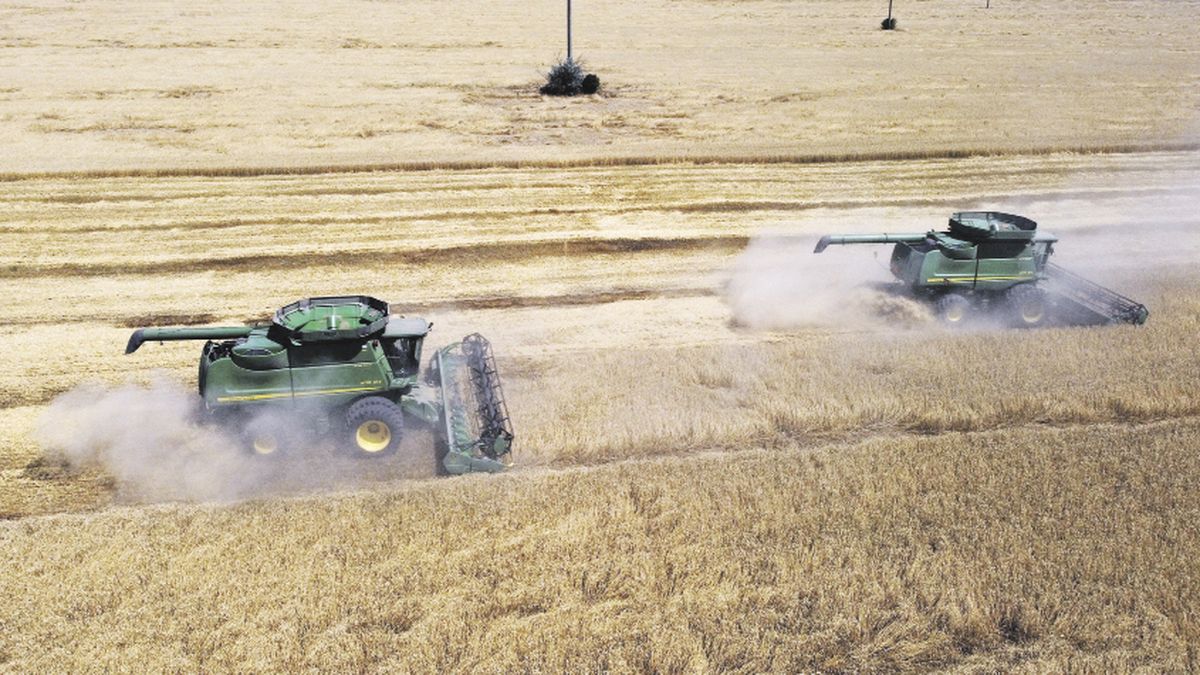Moscow – Russia warned yesterday that it will consider all ships heading towards Ukraine in the Black Sea as “possible military vessels” and the countries to which these vessels belong as part of the conflict, after withdrawing from the agreement that in the last year facilitated the export of grain blocked by the war and in the midst of Kiev’s complaints against Moscow for attacking the places used to collect them.
“In connection with the termination of the Black Sea initiative and the reduction of the maritime humanitarian corridor from 00:00 Moscow time on July 20, all ships en route to Ukrainian ports in Black Sea waters will be considered as possible carriers of military cargo,” the Ministry of Defense said in a statement.
The text added that the flag countries of such cargo ships will be considered involved in the conflict on Ukraine’s side, the local Tass news agency reported.
“Several maritime areas in the northwestern and southeastern parts of the international waters of the Black Sea were temporarily declared dangerous for navigation. Relevant information warnings were issued regarding the withdrawal of security guarantees for sailors,” the ministry said.
Aim
The Kremlin suspended its participation last Monday in the agreement that allowed Ukraine to export almost 33 million tons of grains in the last year, arguing that a pact signed in
parallel to sell their agricultural products, especially fertilizers, affected by the sanctions adopted by the West.
In turn, he justified that some of the conditions of the agreement, signed with the mediation of Turkey and the UN, were not met, such as that the food was going to be destined for the countries that need it most and the reconnection of its agricultural bank, Rosselkhozbank , to the international payment system Swift.
The president of Russia, Vladimir Putin, affirmed yesterday that his country will return to the agreement if the “totality” of what was signed is fulfilled, since otherwise “it no longer makes sense.”
“We will consider the possibility of rejoining, on one condition: that all the principles under which Russia agreed to participate in the agreement are taken into account and fully complied with,” the president declared in a meeting with his government.
Russia’s agricultural sector is also grappling with a lack of spare parts for machinery and industry, as well as insurance problems for ships that charge high fees for moving goods in a war zone.
Moscow is also demanding that the pipeline linking the Russian city of Togliatti with the Ukrainian port city of Odessa, used for the export of ammonia, a key component of fertilizers, be brought back into operation.
The grain agreement “was crucial” to ensure Ukrainian cereal exports to global markets and helped “populations in need”, allowing prices to fall by 23% from the peak reached in March 2022, according to data from the Food and Agriculture Organization of the United Nations (FAO).
Ukraine and Russia together produce one third of the world’s wheat and their exports are
They are also key in products such as corn and sunflower oil, so the blockade on exports due to the war affected food security, especially in developing countries.
In the territory, yesterday there was the second consecutive night of bombing of the port city of Odesa (southern Ukraine), from where grain exports come.
Accusation
Ukrainian President Volodimir Zelensky accused Russia of “deliberately” targeting the infrastructure used for the collection and removal of this food, and urged his allies to increase the supply of anti-aircraft defense systems.
According to the Ministry in charge of the Reconstruction of Ukraine, “the grain terminals and port infrastructures of Odessa and Chornomorsk” were hit, causing damage to “the warehouses and docks of the port of Odessa.”
The Ministry of Agriculture, meanwhile, specified that 60,000 tons of grains were destroyed in the port of Chornomorsk.
For its part, the Russian military claimed that the attacks targeted Ukrainian military sites near Odessa, including “infrastructure for fuel and ammunition depots.”
The pact helped to stabilize world food prices, so the new situation, in which ships do not dare to anchor in Ukrainian ports to load grain, caused a sharp increase in agricultural prices in European markets.
The price of soft wheat closed with strong increases yesterday, up to 253.75 euros per ton in the Euronext market, adding 8.2% during the day, after the intensification of the Russian bombings.
Prices thus returned to their level at the beginning of April, reacting to the escalation of the conflict after the suspension of the maritime corridor to transport grain and the threat from Moscow against any ship going to Ukraine.
Kiev is demanding new tanks and F16 fighter jets, but for now will have to settle for a new $1.3 billion US package, including air defense systems, anti-tank missiles and explosive drones.
Source: Ambito




